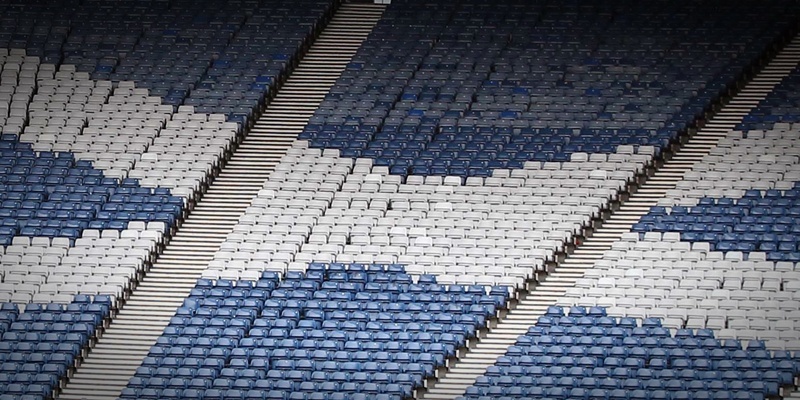A Dundee lecturer who is giving evidence at the Holyrood justice committee today has described the Scottish Government’s bill on sectarianism at football grounds a “snobs’ law.”
Abertay University sociology and criminology lecturer Dr Stuart Waiton said the worrying thing about the bill is that “unpleasant, rowdy behaviour at football grounds should be deemed a crime.”
He added: “People might not like it but if you don’t, then don’t go.”
He said the bill was an attempt to criminalise ordinary fans’ behaviour and added: “It needs to be recognised that the impetus for this is a form of political grandstanding by Alex Salmond.”
Dr Waiton was giving his thoughts ahead of the justice committee where he will give evidence on the Offensive Behaviour at Football and Threatening Communications (Scotland) Bill, stage 2.
He told The Courier the bill was an “absolute farce” and was being used by politicians who lacked “perspective” over the whole issue.
“The argument is that the shame of Scotland is sectarianism at football matches,” he said. But Dr Waiton feels the subject is being whipped up by politicians and the media.
“In terms of football culture, Celtic and Rangers are not particularly different from any other club in Scotland.”
There are, he says, lots of problems associated with the bill and he is “totally and utterly against it.”
He added: “It’s a complete and utter farce there has been a total loss of perspective in this. I’m a Sunderland fan and I don’t think I’ve been to a football match in my life where I haven’t said something offensive to my own team, to the opposition players or to their fans, so lock me up.
“If these politicians want to sit at the opera and applaud politely then let them get on with it. This is a snobs’ law and should be recognised as such.
“They should be saying: ‘We detest ordinary working-class people being offensive at football matches and they should be banned.’ Instead, sectarianism is just being attached to that.
“I’m convinced that the reason this has happened is because the authorities have very little sense of mission and purpose. With this bill they can stand proud, very moral and very upright and no one will challenge them.”
Continued…
“They can appear somehow to be a convincing politician at a time when there is no conviction in politics that’s a reality.”
Dr Waiton added: “The fans are what I would call 90-minute sectarians. It’s a pantomime and then they go home to their Catholic wives and Protestant husbands or non-denominational families they’re not going home to a Ku Klux Klan form of existence.
“No one gives a toss that’s the reality. Tell me anyone under the age of 40 who cares enough about the ideology.”
Also due to give evidence to the committee today is former Dundee United director Derek Robertson of supporters group ArabTRUST, one of several supporters’ representatives from various clubs throughout Scotland. He will represent the views of the trust and the Federation of Dundee United Supporters Clubs.
As a former communications director at Tannadice and former director of Supporters Direct UK, he has a wealth of experience in dealing with fans’ issues from both sides of the fence.
While in principle the fans’ groups support any attempt to remove offensive behaviour anywhere and not just in football, Mr Robertson said: “I’m going to argue for an approach in terms of what is defined as the exact offence. It needs to be targeted and proportionate.
“We’re all in favour of trying to do something but I would say there needs to be more emphasis on the existing legislation it should be applied more rigorously.”EducationMr Robertson added: “If you read the bill it’s open to interpretation and personal opinion and I think they have to do a bit more work on it. There should also be more emphasis on education and self-policing.
“If you look at the Scotland and Northern Ireland fans, they’ve taken great strides over the years to address the problems they had.”
The Scottish Government published its proposals for legislation to tackle sectarianism related to football, including tough new prison terms, in June. The bill aims to stamp out abusive behaviour from fans whether they are watching matches in a stadium, in the pub or commenting online. It would raise the maximum jail term from six months to five years.
The legal profession and Holyrood’s justice committee raised fears, however, that the laws were being rushed through too quickly.
The draft legislation includes two new offences: stirring up religious hatred at or around football matches in a way likely to cause public disorder, including at pubs which are showing the games on television; and using new technology, like internet forums, to air old prejudices.
The new legislation comes in the wake of several high-profile football-related incidents last season, including suspect parcels being sent to Celtic manager Neil Lennon and two high-profile supporters.
